Indian Contract Act, 1872
The Law of Contract constitutes the most important branch of Mercantile or Commercial Law. It is the foundation upon which the superstructure of modern business is built.
It affects everybody, more so, trade, commerce and industry. It may be said that the contract is the foundation of the civilized world.
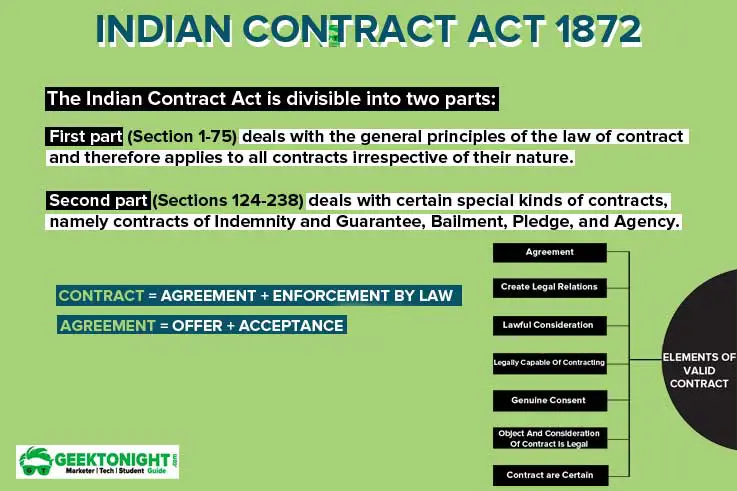
The Indian Contract Act is divisible into two parts.
- The first part (Section 1-75) deals with the general principles of the law of contract and therefore applies to all contracts irrespective of their nature.
- The second part (Sections 124-238) deals with certain special kinds of contracts, namely contracts of Indemnity and Guarantee, Bailment, Pledge, and Agency.
Table of Content
What is Contract?
According to section 2(h) of the Indian Contract Act, 1872 “An agreement enforceable by law is a contract.“
A contract is a combination of the two elements:
- There must be an agreement
- Agreement must be enforceable by law (obligation)
Contract = Agreement + Enforcement by law
Agreement
Section 2(e) “Every promise and every set of promises, forming the consideration for each other, is an agreement.” Thus it is clear from this definition that a ‘promise’ is an agreement.
Agreement = offer + Acceptance
Promise
Section 2(b) “when the person to whom the proposal is made signifies his assent thereto, the proposal is said to be accepted. A proposal, when accepted, becomes a promise.“
An agreement, therefore, comes into existence when one party makes a proposal or offer to the other party and that other party signifies his assent thereto.
Following are the characteristics of an agreement:
- Plurality of persons: There must be two or more persons to make an agreement because one person cannot enter into an agreement with himself.
- Consensus ad idem: The meeting of the minds is called consensus-ad-idem. It means both the parties to an agreement must agree about the subject matter of the agreement in the same sense and at the same time.
Legal obligation
As stated above, an agreement to become a contract must give rise to a legal obligation i.e. a duty enforceable by law.
Elements of a Valid Contract
Section 10 of the Indian Contract Act, 1872 provides that “all agreements are contracts if they are made by the free consent of parties competent to contract, for a lawful consideration and with a lawful object, and are not hereby expressly declared to be void”.
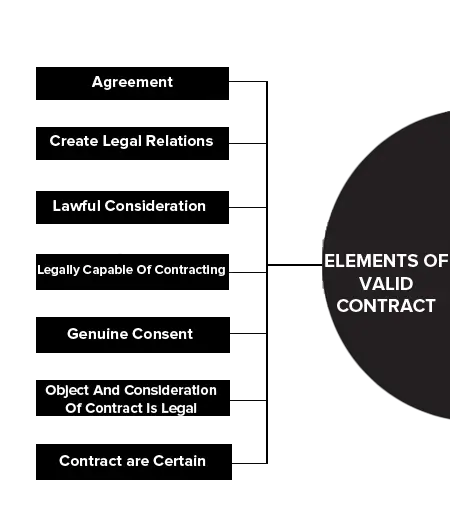
Thus, the essential elements of a valid contract are as follows:
- An offer or proposal by one party and acceptance of that offer by another party resulting in an agreement —consensus-ad-idem.
- An intention to create legal relations or intent to have legal consequences.
- The agreement is supported by a lawful consideration.
- The parties to the contract are legally capable of contracting.
- Genuine consent between the parties.
- The object and consideration of the contract is legal and is not opposed to public policy.
- The terms of the contract are certain.
Therefore, to form a valid contract there must be (i) an agreement (ii) based on the genuine consent of the parties, (iii) supported by a lawful consideration, (iv) made for a lawful object, and (v) between the competent parties.
Offer and Acceptance
Firstly, there must be an offer and its acceptance.
Such offer and acceptance should create legal obligations between parties. This should result in a moral duty on the person who promises or offers to do something.
Similarly, this should also give a right to the promise to claim its fulfilment. Such duties and rights should be legal and not merely moral.
Case law: In Balfour v. Balfour, a husband promised to pay maintenance allowance every month to his wife, so long as they remain separate. When he failed to perform this promise, she brought an action to enforce it. As it is an agreement of domestic nature, it was held that it does not contemplate to create any legal obligation.
Consent
Consent means ‘knowledge and approval’ of the parties concerned.
A contract is made when one person makes an offer while another person accepts the offer. This acceptance of the offer should be made without any force or threat. It means that a consent given should be free and genuine.
Example: A has two Bike – one black and the other white. He offers to sell one of his Bike to B. A intends to sell the black one while B accepts the offer believing that it is for the white Bike. Here, A and B are not thinking in the same sense of a particular thing. In this situation, there is a mistake, so it cannot be said to be free consent.
Capacity of the parties
The third essential element of a valid contract is the capacity of the parties to make a valid contract. Capacity or incapacity of a person could be decided only after calculating various factors.
Section 11 of the Indian Contract Act,1872 elaborates on the issue by providing that a person who-
(a) has not attained the age of majority,
(b) is of unsound mind, and
(c) is disqualified from entering into a contract by any law to which he is subject, should be considered as not competent to enter into any contract.
Therefore, law prohibits
- Minors
- Persons of unsound mind
- Person who is otherwise disqualified like an alien enemy, insolvents, convicts etc from entering into any contract.
Consideration
Section 2(d) of the Indian Contract Act, 1872 defines consideration thus:
“when at the desire of the promisor, the promisee or any other person has done or abstained from doing, or does or abstains from doing, or promises to do or to abstain from doing something, such act or abstinence or promise is called a consideration for the promise”.
In simple words ‘Consideration’ would generally mean ‘compensation’ for doing or omitting to do an act or deed. It is also referred to as ‘quid pro quo’ viz ‘something in return for another thing’. Such a consideration should be a lawful consideration.
Example: A agrees to sell his toys to B for Rs. 100, B’s promise to pay Rs. 100 is the consideration for A’s promise to sell his toys and A’s promise to sell the toys is the consideration for B’s promise to pay Rs. 100.
Not expressly declared to be void
The last essential elements of a valid contract to clinch a contract are that the agreement entered into for this purpose must not be which the law declares to be either illegal or void.
An illegal agreement is an agreement expressly or impliedly prohibited by law. A void agreement is one without any legal effects.
Example: Threat to commit murder or making/publishing defamatory statements or entering into agreements which are opposed to public policy is illegal in nature.
Similarly, any agreement in restraint of trade, marriage and legal proceedings etc. are classic examples of void agreements.
Key Term
Contract: A written or spoken agreement, especially one concerning employment, sales, or a tenancy that is intended to be enforceable by law.
Promise: In contracts, a promise is essential to a binding legal agreement and is given in exchange for consideration, which is the inducement to enter into a promise.
Agreement: An agreement creating obligations enforceable by law. The basic elements of a contract are mutual assent, consideration, capacity, and legality.
Summary
The Indian Contract Act mostly deals with the general principles and rules governing contracts. The Act is divisible into two parts.
• The first part (Section 1- 75) deals with the general principles of the law of contract, and therefore applies to all contracts irrespective of their nature.
• The second part (Sections 124-238) deals with certain special kinds of contracts, namely contracts of Indemnity and Guarantee, Bailment, Pledge, and Agency.
According to Section 2 (h) of the Indian Contract Act, 1872 “An agreement enforceable by law is a contract.”
A contract, therefore, is a combination of the two elements:
- an agreement
- an obligation
Business Law Notes
(Click on Topic to Read)
Business Law Book References
- Goel, P. K. (2006). “Business Law for Managers” Wiley
- Sheth, T. (2017). “Business Law” (2ed.) Pearson.
- Kuchhal. M.C. & Prakash. “Business Legislation for Management” (2ed.) Vikas Publishing.
FAQ
Business Law is also known as Commercial law or corporate law, is the body of law that applies to the rights, relations, and conduct of persons and businesses engaged in commerce, merchandising, trade, and sales.
Indian Contract Act 1872 Summary Note
The Indian Contract Act is divisible into two parts.
First part (Section 1-75) deals with the general principles of the law of contract.
Second part (Sections 124-238) deals with certain special kinds of contracts.
It is the duty of the seller to deliver the goods and of the buyer to accept and pay for them, in accordance with the terms of the contract of sale.
– Sec. 31, The Sale of Goods Act, 1930
Sales of Goods Act 1930 came into force on 1st July 1930. It extends to the whole of India. It does not affect rights, interests, obligations and titles acquired before the commencement of the Act. The Act deals with the sale but not with mortgage or pledge of the goods.
The Sale of Goods Act, identifies the terms, “Conditions and Warranties” as being of a prime significance in a contract of sale.
Negotiable Instruments Act 1881
Negotiation of an instrument is the process by which the ownership of an instrument is transferred from one person to another.
The crossing of Cheque means that the specific cheque can only be deposited straightway into a bank account and cannot be instantly cashed by a bank or any credit institution.
Promissory Note, on the other hand, is a promise to pay a certain amount of money within a stipulated period of time. And the promissory note is issued by the debtor.
Bill of exchange is an instrument ordering the debtor to pay a certain amount within a stipulated period of time. Bill of exchange needs to be accepted in order to call it valid or applicable. And the bill of exchange is issued by the creditor.
A cheque is a bill of exchange, drawn on a specified banker and it includes ‘the electronic image of truncated cheque’ and ‘a cheque in electronic form’.
Go On, Share article with Friends
Did we miss something in Business Law Note? Come on! Tell us what you think about our article on Indian Contract Act 1872 Definition, Meaning, Books in the comments section.
Business Law Notes
(Click on Topic to Read)
- What is Business Law?
- Indian Contract Act 1872
- Essential Elements of a Valid Contract
- Types of Contract
- What is Discharge of Contract?
- Performance of Contract
- Sales of Goods Act 1930
- Goods & Price: Contract of Sale
- Conditions and Warranties
- Doctrine of Caveat Emptor
- Transfer of Property
- Rights of Unpaid Seller
- Negotiable Instruments Act 1881
- Types of Negotiable Instruments
- Types of Endorsement
- What is Promissory Note?
- What is Cheque?
- What is Crossing of Cheque?
- What is Bill of Exchange?
- What is Offer?
- Limited Liability Partnership Act 2008
- Memorandum of Association
- Articles of Association
- What is Director?
- Trade Unions Act, 1926
- Industrial Disputes Act 1947
- Employee State Insurance Act 1948
- Payment of Wages Act 1936
- Payment of Bonus Act 1965
- Labour Law in India
Business Law Notes
(Click on Topic to Read)
- What is Business Law?
- Indian Contract Act 1872
- Essential Elements of a Valid Contract
- Types of Contract
- What is Discharge of Contract?
- Performance of Contract
- Sales of Goods Act 1930
- Goods & Price: Contract of Sale
- Conditions and Warranties
- Doctrine of Caveat Emptor
- Transfer of Property
- Rights of Unpaid Seller
- Negotiable Instruments Act 1881
- Types of Negotiable Instruments
- Types of Endorsement
- What is Promissory Note?
- What is Cheque?
- What is Crossing of Cheque?
- What is Bill of Exchange?
- What is Offer?
- Limited Liability Partnership Act 2008
- Memorandum of Association
- Articles of Association
- What is Director?
- Trade Unions Act, 1926
- Industrial Disputes Act 1947
- Employee State Insurance Act 1948
- Payment of Wages Act 1936
- Payment of Bonus Act 1965
- Labour Law in India


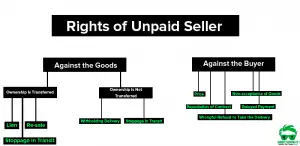
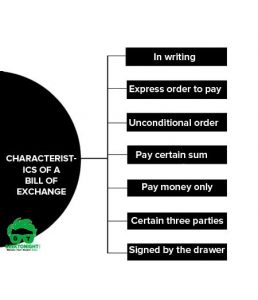
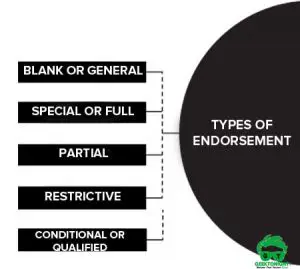
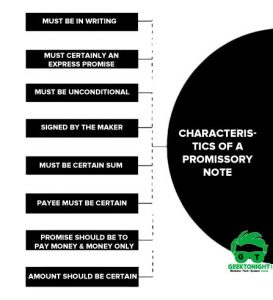
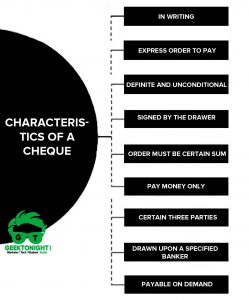


It’s good